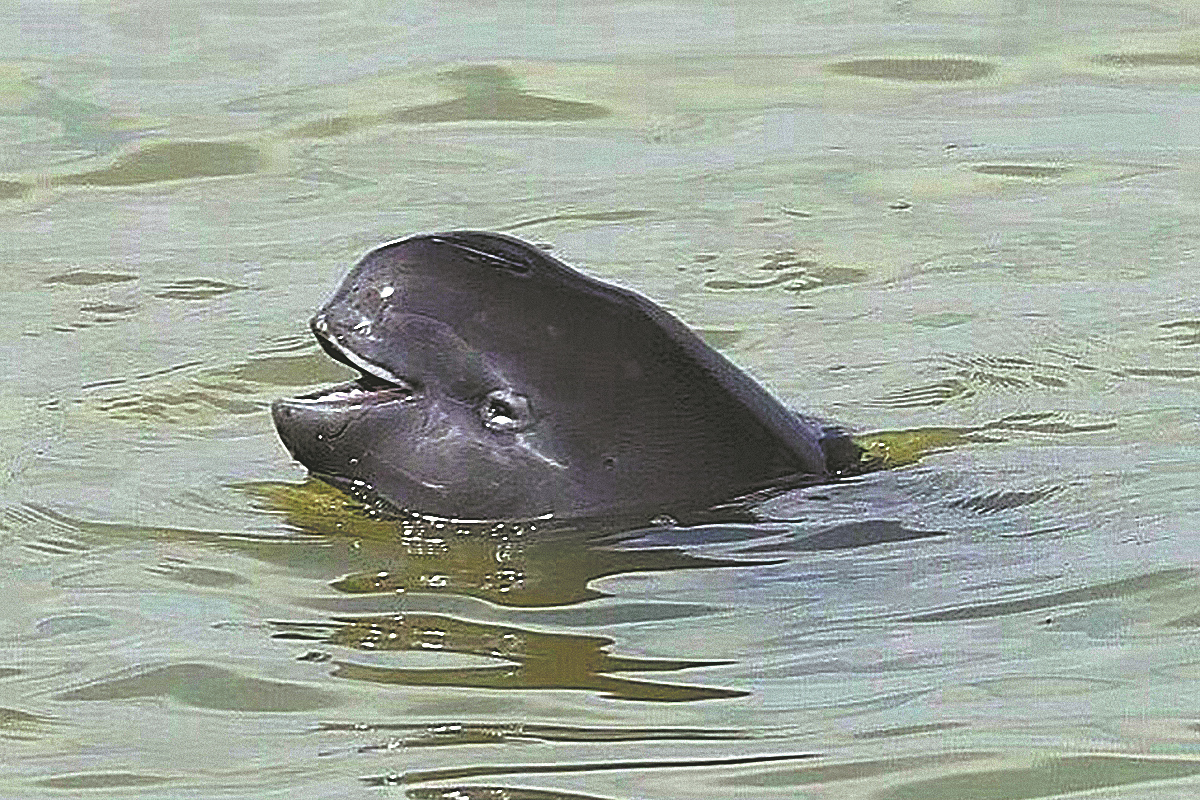Steps taken to protect Poyang's porpoises
 0 Comment(s)
0 Comment(s) Print
Print E-mail China Daily, September 12, 2022
E-mail China Daily, September 12, 2022

A Yangtze finless porpoise is seen in Poyang Lake in Jiujiang, Jiangxi province, in 2018. [Photo/China Daily]
Agricultural and fishery administrations in Jiangxi province have rolled out measures to protect finless porpoises, which have faced dramatic changes in their living environment as Poyang Lake, China's largest freshwater lake, has entered the dry season 100 days early.
The species-dubbed the "smiling angel" because its smooth, gray face appears to be fixed in a permanent grin-is classified as critically endangered by the International Union for Conservation of Nature. It now lives only along the middle and lower reaches of the Yangtze River.
The number of the species had declined to 1,012 in 2017, with 457 living in Poyang Lake, according to Thepaper.cn.
However, as the water level fell to less than 12 meters in August, the lake entered this year's dry season the earliest since records began in 1951, and more than two months earlier than the average starting date between 2003 and 2021.
Severe drought has reduced the lake by 75 percent, according to the local agricultural department. The significant reduction of water has seriously affected the survival of the finless porpoise species.
Last weekend, a traveler to the northern shoreline of Poyang Lake in the city of Jiujiang posted a video showing the dead body of a finless porpoise on a dry riverbed.
It was the seventh finless porpoise found dead in the Poyang Lake area this year.
Zhou Wei, a science writer, was quoted by Beijing News as saying, "The reduction of water compresses the living space of the finless porpoises and forces them to swim to the deep water of the main channel of the lake.
"It will no doubt increase the risk of the finless porpoises hitting propellers (of boats) as their lives overlap with human activities. Extremely dry weather will also affect the reproduction of fish in the following year, which may result in a food shortage for the porpoises."
He added that the species gives birth in the spring and autumn, so now is a critical period for the porpoises to feed newborns. But the parents may not be able to provide a relatively safe habitat for the newborns, as the water level has fallen dramatically.
Wang Liang, who works for the provincial Department of Agriculture and Rural Affairs of Jiangxi, said that the province has released a total of 200 million fish, shrimp and crabs into the waters for five consecutive years to enrich the food supply and maintain the local aquatic population.
Wang said that the province established a 6,800-hectare nature reserve in Poyang Lake, where the building of illegal docks has been severely punished and sewage has been treated effectively.
"More than 2,000 volunteers have been attracted by our finless porpoise protection work to set up 203 patrol teams to safeguard and rescue the species," he added.






Go to Forum >>0 Comment(s)